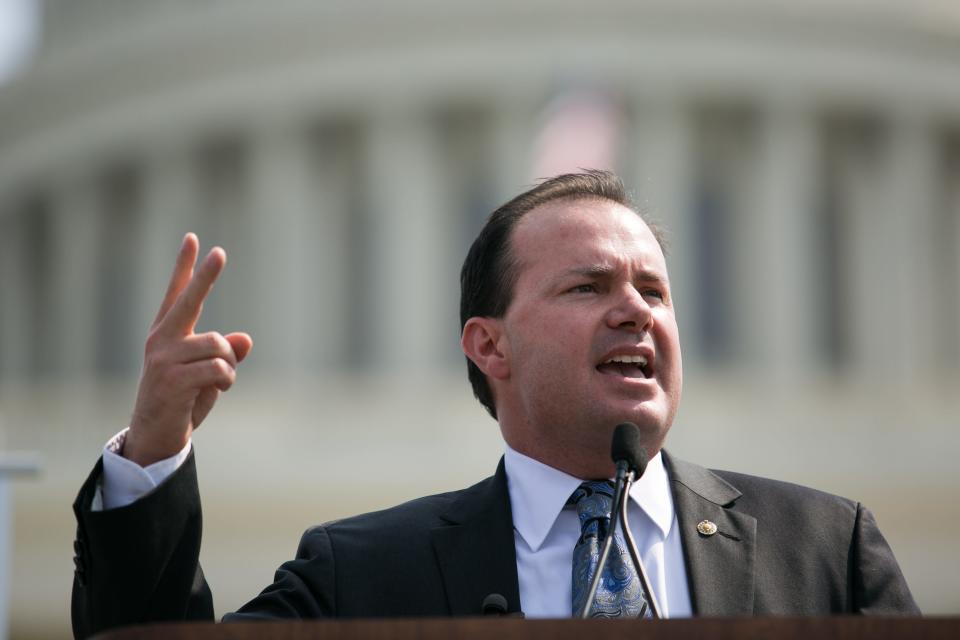Trump's Mexico tariff threat shows Congress must reclaim trade powers and much more
It’s not every day that a topic near and dear to my heart — the separation of powers — becomes front-page news, but that’s exactly what happened this month as thousands of manufacturers, farmers, retailers, builders and restaurateurs realized that President Donald Trump was absolutely serious about implementing a 5% tariff on all Mexican imports on June 10.
President Trump ended up calling off the tariff hike after receiving promises from Mexico to help stem the tide of Central American migrants causing a humanitarian crisis on our southern border, but the very real threat of suddenly higher import costs has left many businesses looking for policy predictability. Just this week, India imposed retaliatory tariffs on 28 American products.
Some have argued that President Trump’s threatened tariffs are unconstitutional because taxing and regulatory authority belong to Congress. And it is true that Article I Section 8 of the Constitution gives Congress, not the president, the power “to regulate commerce with foreign nations,” as well as to impose “taxes, duties, imposts and excises.” The first major piece of legislation passed by the first Congress was in fact a trade bill, the Tariff Act of 1789.
Read more commentary:
Like it or not, the Mexico tariff threat worked
If Trump slaps tariffs on Mexican imports, you'll pay more to buy a car
Mexico tariffs might energize Trump voters for 2020, but they won't reduce immigration
Unfortunately, starting during the progressive era, Congress began giving more and more of its tariff-management authority, and a slew of other legislative powers, to the president. At first, the Supreme Court blocked many of these delegations of legislative authority, but by the late 1930s the court had almost completely relented, allowing Congress to give away as many of its legislative powers as it wished.
As a result of these court decisions and decades of Congress punting power to the president, as much as some members of Congress may hate to admit, what President Trump did was perfectly constitutional and legal. He was only exercising the legislative powers that past Congresses gave to the executive branch.

But what legislative powers Congress has given the executive branch, Congress can also take back. That is why I introduced the Global Trade Accountability Act in January of 2017.
The Global Trade Accountability Act would reform the Trade Act of 1974 to require congressional approval for any “unilateral trade action” undertaken by the executive branch. Before raising any trade barriers, the president would be required to submit a report to Congress outlining the proposed unilateral action, the costs and benefits of the action, and the effective period of the action. Both chambers of Congress would then have to pass an expedited joint resolution approving the proposed action before it could go into force.
Take back powers and start with trade
Presidents rarely give up power easily. Taking back trade power from the executive branch will be no different. But the executive branch still needs congressional approval for many things, including nominations, appropriations and other legislative priorities. If Congress makes reclaiming our tariff-making powers a priority, we can get them back. We should. And we shouldn’t stop there.
From trade to energy to health care to transportation, Congress has given far too much legislative power to the executive branch. Instead of taking the time and responsibility to make hard choices and take tough votes, Congress has instead chosen to avoid accountability by giving power to faceless bureaucrats in Washington.
This is not how our Constitution was designed to work. The Constitution was specifically written to protect the American people from government without consent. It intentionally gave the lawmaking power exclusively to the most accountable branch of the federal government — Congress. It is far past time Congress took these legislative powers back. We can start with the Global Trade Accountability Act.
Sen. Mike Lee, R-Utah, is a member of the Senate Judiciary Committee. Follow him on Twitter: @SenMikeLee
You can read diverse opinions from our Board of Contributors and other writers on the Opinion front page, on Twitter @usatodayopinion and in our daily Opinion newsletter. To respond to a column, submit a comment to letters@usatoday.com.
This article originally appeared on USA TODAY: Trump's Mexico tariff threat shows Congress must reclaim trade powers and much more

